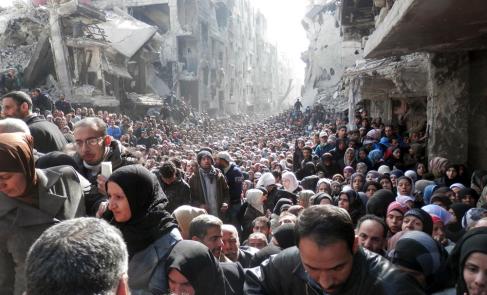The United Nations has further confirmed that Syria’s authorities ensure all humanitarian aid goes to regime-held areas.
UN officials said that more than 85% of food aid and more than 70% of medicines went to the regime’s neighborhoods, compared to a 50-50 split between regime and insurgent areas in 2013.
Damascus has claimed that the aid is limited because of security issues; however, UN officials, activists, and the opposition say that President Assad’s officials have prevented cross-border deliveries.
The Syrian military has pursued “surrender or starve” sieges on insurgent-held territory for up to two years.
UN Secretary General Ban Ki-moon will reveal the situation publicly next week to the Security Council.
The Council passed a resolution on February 22 calling on all sides, and especially the regime, to permit aid; however, it could not include enforcement because of Russian opposition.
Senior UN officials say they face expulsion from Syria, and thus any ability to bring in aid, if they defy the authorities.
John Ging, who manages field operations UN’s Office for the Coordination of Humanitarian Affairs, said the agencies had been told by the regime that they would be kicked if they crossed borders without consent.
“The calculation of what to do in the face of such threats and obstruction is very complex; history will judge as to whether we got it right or wrong,” Mr. Ging said. “In the meantime, we will never accept being blocked from saving lives and have appealed to the Security Council for help.”
The US and Britain have recently said they will consider delivery of non-military aid outside UN channels.
(PHOTO: Residents queue for aid in Damascus section of Yarmouk in February)

